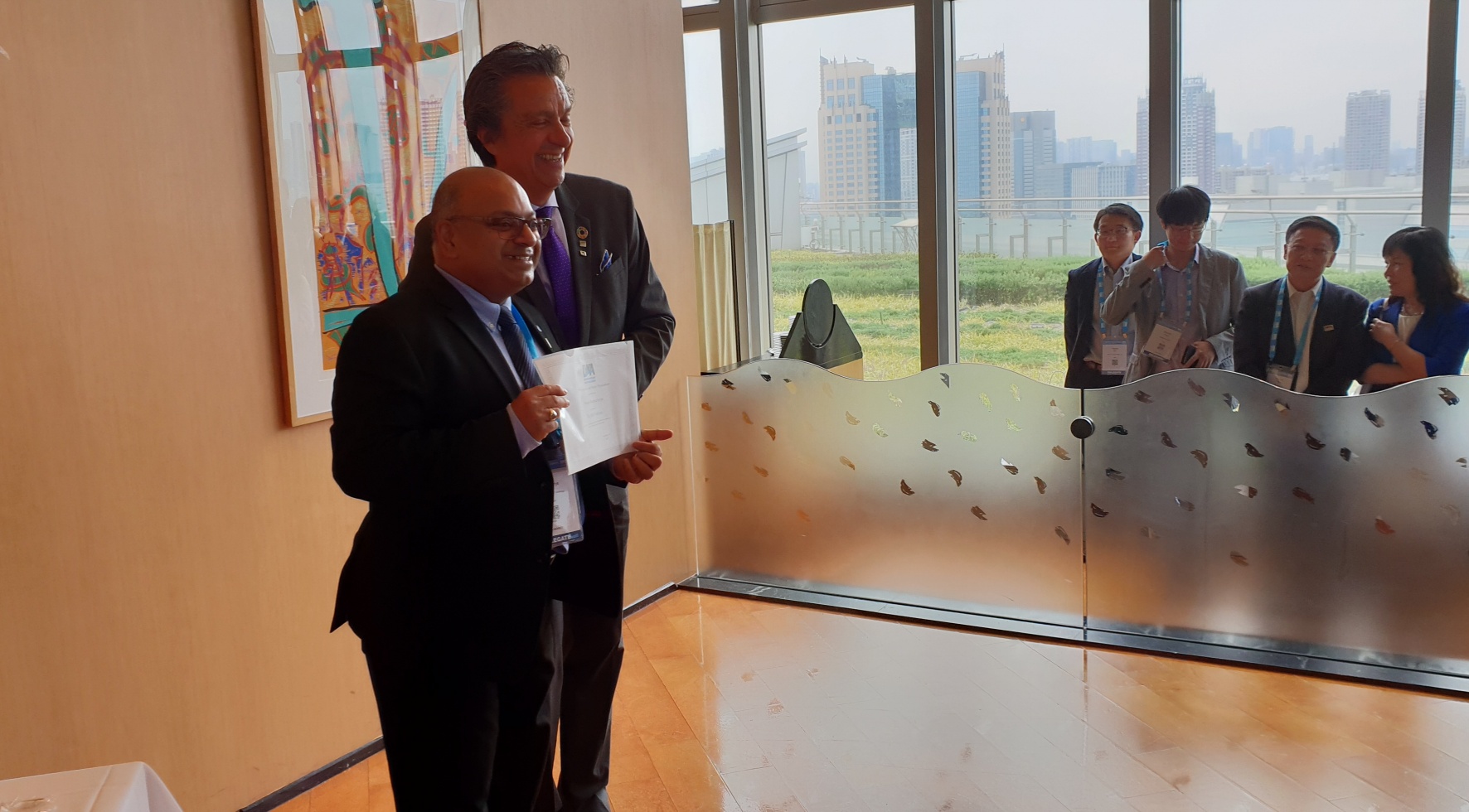Interview with IWA Fellow 2018 - Prosun Bhattacharya

We congratulate Prosun Bhattacharya who has been awarded an IWA fellowship, and ask him to tell us more about IWA and the fellowship.
What is IWA and why are they important?
The demand of freshwater is increasing globally, to meet needs of drinking water supply and irrigation to support the ine need for increased food production. This is projected to increase by 70% to feed a projected global population of 9.3 billion people by 2050. Hence, the state and management of freshwater resources is one of the world's most pressing challenges. Water underpins every aspect of human and environmental existence and thus forms the core of sustainable development, critical for economic development, environmental sustainability and human well-being.
The International Water Association (IWA) is an apex organization, which has an ambition to inspire change through connecting water to issues that underpin global development goals. IWA members and staff are spread in 130 countries worldwide, forming the largest international network of water professionals. The IWA also is instrumental to put water on the global political agenda and to influence and promote the best practices in regulatory and policy making framework, through global events that bring the latest cutting edge science, technology and best practice for water and wastewater management.
What does it mean to become an IWA Fellow?
The IWA Fellows and Distinguished Fellows programme recognises an individual’s sustained outstanding contribution to the water profession, and to delivering the IWA mission of creating a water wise world. The nominations for IWA Fellows are based on their significant contributions as engineers, educators, utility managers, regulators, researchers, scientists, or technical leaders. An IWA Fellow is appointed for an initial period of 5 years. During that time Fellows are expected to represent the IWA through relevant activities, events and meetings, and support the IWA’s mission and leadership in the implementation of the strategic plan of the IWA. IWA Distinguished Fellows are appointed for an initial 10 years to participate in and lead key activities of IWA, such as during the World Water Congress, Water and Development Congress and other conferences, workshops, specialist groups and the development of position papers.
Why is IWA granting you a Fellowship?
The citation reads “This recognition is based on significant contributions to the industry, to IWA and on your commitment to professional contributions in the future by actively participating and contributing to the IWA’s activities.”
I would like to add that this recognition was primarily based on my contribution in the field of research on arsenic in drinking water - a priority contaminant that is affecting a population of more than 130 million, globally and an issue of public health concern.
How would you describe your research?
My primary research is in the field of groundwater contamination in different parts of the world, especially focusing on geogenic contaminants – arsenic and fluoride. My early phase research has focused on understanding the fundamental mechanisms of mobilization of As and F in groundwater, through collaborative research engagements with universities and research organizations in India, Bangladesh, China, Australia, Argentina, Ghana, Costa Rica, Bolivia, Tanzania, Turkey, The Netherlands and USA. The scientific knowledge gathered through this extensive research subsequently guided the research towards mitigation of the global problems of As and F in groundwater used for drinking purposes. I have coordinated the prestigious Swedish International Development Cooperation Agency supported action research and implementation project “Sustainable Arsenic Mitigation-SASMIT” Community driven initiatives to target arsenic safe groundwater as sustainable mitigation strategy in Bangladesh* (2007-2017). Known as the SASMIT protocol, the research delivered two new innovations, firstly the Sediment Colour Tool that would empower the local drillers to target aquifers with low As in groundwater and secondly the Intermediate depth aquifers to be targeted for drinking water well installations with low arsenic and manganese. Besides, I have also been involved with the initiatives on research capacity building on geogenic contamination in groundwater and mitigation in Bolivia (2007-ongoing) and Tanzania (2015 ongoing). I have mentored more than 12 PhD students and supervised more than 50 students at Master degree levels. I have authored/co-authored over 350 international publications in peer-reviewed journals and conference proceedings, cited more than 9000 times (Google Scholar and Google h-index 48) and i10-index of over 110. I have organised several international workshops on natural arsenic in groundwater and sustainable mitigation and edited 15 books on diverse aspects of natural arsenic in groundwater and groundwater for sustainable development until 2017. I am the Editor in Chief of Journal Groundwater for Sustainable Development published by Elsevier and the Frontiers in Environmental Sciences: Specialty Section on Groundwater Resources and Management and Associate Editor of Journal of Hydrology and a member of the Editorial Board of Environment International. Based on my global engagements in the field of arsenic research I have been honored with the title as the Fellow of the Geological Society of America in April, 2012. Since 2017, and am the Chair of the IWA Specialist Group Metals and Related Substances in Drinking Water (METRELS).
Read more on Prosun's research on arsenic contamination. (pdf 1.8 MB)
